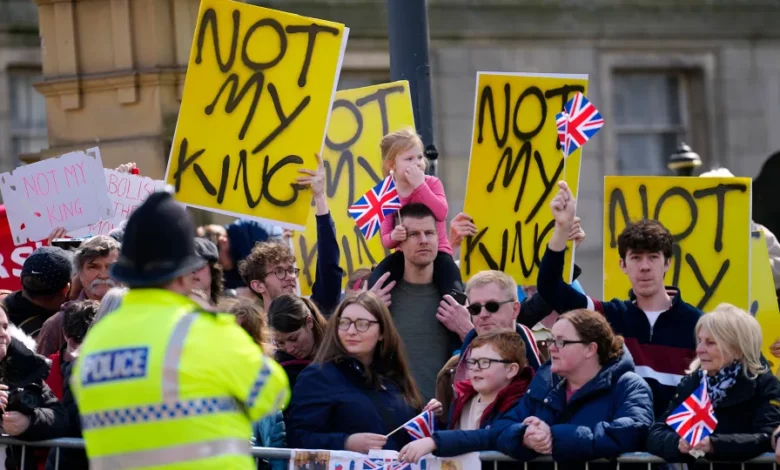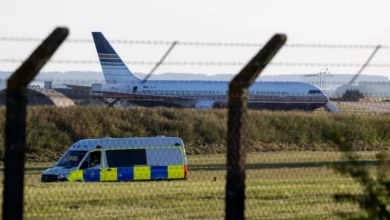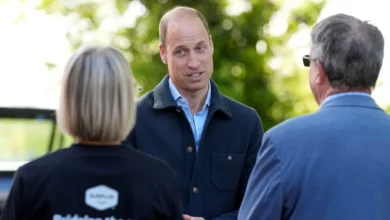
Parts of a controversial public order bill, which empowers British police to take stronger action against peaceful protesters, will come into force on Wednesday, days ahead of the coronation of King Charles III.
The Home Office said the Public Order Act on Tuesday received royal assent fro King Charles, which is a formality and the final hurdle before a bill becomes law.
It will “give police the powers to prevent disruption at major sporting and cultural events taking place this summer in England and Wales,” the Home Office said in a statement.
Specific measures in the act will be introduced from Wednesday.
From May 3, long-standing protest tactics such as locking on (where protesters physically attach themselves to things like buildings) could lead to a six-month prison sentence or “unlimited fine,” said the Home Office.
The law also means that the police will be empowered to stop and search protesters “for items like padlocks, superglue and digging tools if they suspect they are setting out to cause chaos,” it added. Individuals found with such items and who intend on using them will also face criminal charges, it said.
This comes ahead of Saturday’s coronation, which anti-monarchists have vowed to protest against.
The bill also openly targets groups such as Black Lives Matter, Extinction Rebellion and Just Stop Oil, all of which have used disruptive tactics in their protests against the government.
“The public shouldn’t have their daily lives ruined by so called ‘eco-warriors’ causing disruption and wasting millions of pounds of taxpayer money,” Home Secretary Suella Braverman said in a statement on Tuesday.
“The selfish minority must not be allowed to get away with this. We are giving our police and courts the tools they need to stop this chaos and I back them in making full use of these powers.”
Human rights activists have accused the government of trying to suppress freedom of speech with the law, while opposition politicians claim that Downing Street is simply trying to distract from the myriad of things going wrong in the United Kingdom at the moment.
Since the death of Queen Elizabeth II last year, there have been a number of instances of anti-monarchists turning up at royal engagements to voice their grievances against the institution.
Coronation costs
Amid a rising cost of living crisis that is now impacting the whole of the UK, the government has refused to put a figure on the cost of the coronation, with estimates by British media ranging from £50 million to more than £100 million ($63 million to $125 million).
Buckingham Palace said late on Tuesday that the true figures of the cost pertaining to King Charles’ coronation will be shared in due course, after questions were raised over the money spent on the state event during a national cost of living crisis.
‘I’ve seen a number of different estimated figures floating around, some more fanciful than others. The true figures will be shared in due course where expenditure relates to the Sovereign Grant or Government costs,” a palace spokesperson said in a statement responding to concerns over the UK’s cost of living.
The statement went on to say that great state occasions, such as the Queen’s funeral, tend to generate more money than the money spent on such events.
“One of the lessons from Her late Majesty’s funeral was how a national occasion like this, a great State occasion, does attract huge global interest that more than repays the expenditure that goes with it, indeed it vastly exceed it in terms of the boost to our economy and to our nation’s standing,” the statement added.




